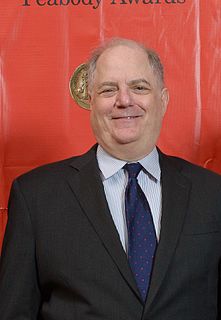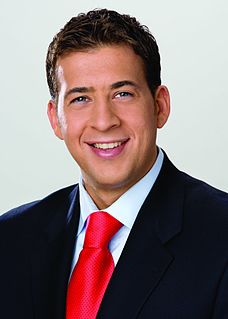A Quote by Frank Rich
Nationalization would likely mean wiping out the big banks' managements and shareholders. It's because that reckoning has mostly been avoided so far that those bankers may be the Americans in the greatest denial of all.
Related Quotes
Temporary nationalization of the banks that are in very bad shape would mean basically that the government is the temporary owner. I always believe that the government should focus on its comparative advantages, and banking is not one of them. It should, therefore, if it nationalizes banks, sell them back to the private sector.
I suggested a compromise to give the banks a year's time and see if they succeed in showing us that nationalization wasn't necessary. The year went by and we realized it hadn't done any good, that the money still ended up in the hands of the rich industrialists or friends of the bankers. So I concluded that it was necessary to nationalize the banks. And we did. Without considering it a socialist gesture or an antisocialist gesture, just a necessary one. Anyone who nationalizes only so as to be considered on the left to me is a fool.
But if, if you take a look at what would have happened, I mean, do we need to see soup lines down the street to figure out what would have happened? We avoided - and all economists will tell you that millions of jobs were saved because of the Recovery Act, and we avoided a second Great Depression. That, that is a reality.
My guess is the big Chinese banks will be in 100?countries by then. They will have very sophisticated operations, and they may very well have bought banks around the world in countries that allow it. I mean, I don't think the American government would allow them to buy JPMorgan. But they will be able to buy a sizable big bank in the U.S. at some point. Whether they do or not, or if it's allowed or not, I don't know.
Banks don't want certain asset classes, and that's created opportunities for private equity, hedge funds, Silicon Valley. In this case I think he was referring to some of the European banks shedding assets, and the big buyers are probably not going to be big American banks. Someone like Blackstone may have a very good chance to buy those assets, leverage them, borrow up a little bit, and do something good there.
If you were at Lehman, the same thing happened. If you were at AIG, the shareholders are getting creamed on these things. And those shareholders are not just a bunch of big shots in Wall Street. Those are pension funds, and those are investors all over the country. I wouldn't worry too much about that. Justice won't be perfect on it.
We get stuck in old thought and behavior patterns that may have been effective when we were twelve months or twelve years old, but now only serve to hold us back. And, while those around us may have no problem correcting our minor flaws, they let the big ones slide, because it would mean attacking who we are.
If the big banks expect to buy influence when they give money to favored think tanks, then the public has a right to know. If the big banks don't expect to buy influence and are merely making charitable contributions, then their shareholders have a right to know. Either way, there's no excuse for keeping these payments secret.
We could have saved Wall Street without putting our future in jeopardy. I predicted that there would be all-around consequences - in the long run as well as in the short run. People are now saying we can't afford health care reform because we spent all the money on the banks. So, in effect, we're saying that it's better that we give rich bankers a couple of trillion than giving ordinary Americans access to health care.
I mean, I was just one of the ones who got exposed, and because of the position I was in, where I was in my life, it went mainstream. A lot of people got out of it after my situation, not because I went to prison but because it was sad for them to see me go through something that was so pointless, that could have been avoided.





























